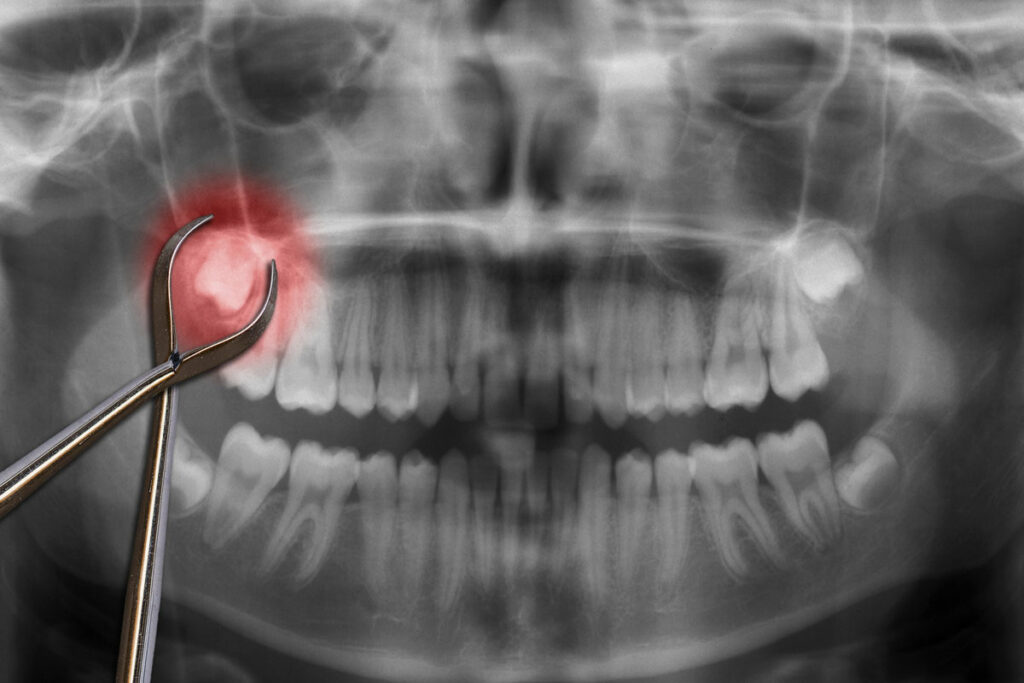The time for wisdom teeth to erupt varies from person to person. They grow between the ages of 16 and 30, but this is not the norm. They may come out later or not at all.
The wisdom tooth often gets stuck in the jawbone. This is the cause of most complaints. There are cases when there is no wisdom tooth in the jawbone at all, which is called germ deficiency. Germ deficiency can affect one or more wisdom teeth.
Many people explain the lack of germs and wisdom teeth by the fact that during evolution, as our eating habits and the quality of the food we eat has changed, we no longer need the chewing power that prehistoric man had, so wisdom teeth have become “unnecessary”.
A wisdom tooth does not have to be cavity, crowded or broken to cause problems. In most cases, the problem is caused by a lack of space for them, which can lead to crowding, decay, cavities, crowding, and inflammation of the surrounding tissues.
A partially erupted wisdom tooth can form a pouch between the tooth and the gum, which can harbour bacteria that cause inflammation.

(image source : thehealthsite.com)
This can be accompanied by extreme pain, swelling, unpleasant breath, sometimes accompanied by pus formation, and if left untreated can even lead to mouth closure.
Their removal is therefore mostly necessary to protect the surrounding tissue and teeth.
The wisdom tooth removal is a good choice:
- if any of the above complaints recur more than once
- if the horizontal position of the tooth causes it to lean against the seventh tooth in front of it, thereby “compressing” the entire row of teeth
- before orthodontic treatment if the blockage is caused by a wisdom tooth
- if there is not enough space in the jawbone for pre-fracture (can be determined by taking a panoramic X-ray)
- if the gums around the gum are inflamed, red, painful, or pus may be forming
- if it irritates the mucous membranes of the face due to its position
- if there is pockmarking
These complaints are not necessarily associated with the removal of the wisdom tooth.
In some cases, by eliminating the symptoms, wisdom teeth can be saved and used as full teeth in the long term. To do this, however, you should consult a dentist as soon as you start to have complaints!
If you have any questions or would like to have your teeth checked, please feel free to contactour dentists at , who will be happy to help you!

